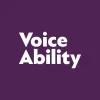VoiceAbility make sure that people are heard when it matters most. We’ve been supporting people to have their say in decisions about their health, care and wellbeing for almost 40 years. We’re an independent charity and one of the UK’s largest providers of advocacy and involvement services, with local teams around the country.
We believe that everyone should have their rights respected and the support they need to be heard. We work hard to protect people’s rights. We do this through our advocacy services and by helping to make sure that laws, regulations and systems deliver the health and social care and support that is right for each individual.
Issues with the current NHS complaints system
NHS complaints advocates support people to complain about the treatment or care that they, a friend, or family member have received from an NHS service. This support is available at every stage of the complaints process. For the person making a complaint, the support can be really important at a very difficult time.
At VoiceAbility, we’ve been providing NHS complaints advocates for nearly 8 years. Our advocates have first-hand experience of the current complaints system and told us that:
- organisations and departments handle and resolve complaints inconsistently
- providers often view complaints negatively, rather than as a learning opportunity
- providers are often afraid to say sorry, or to ask people what a good resolution for them would look like.
A Framework to make the complaints process clearer
When work started to develop a Complaint Standards Framework, we were keen to make sure that the new Framework would address these problems and make the complaints process clearer for people.
We think the new Framework it will make it easier for people to understand what to expect when they make a complaint. The Framework also tells complaint handlers what support is available to people who want to complain, including advocacy, so that they are able to signpost people at the earliest possible stage. We know that for many people, getting the right support through the complaints process can make all the difference.
Reaching out to get the views of seldom-heard groups
So that our response to the consultation reflects people’s experience, we have been gathering views on the Framework. We’ve focused on making sure that we include the views of seldom-heard groups who might not otherwise engage with the consultation process.
To do this we:
- got in touch with some of the people who we have recently supported to complain, including people who are in prison, to ask about their experience, and whether the Framework would make a difference
- worked with our Involvement groups, which tend to be groups of people with mental health conditions or with learning disabilities, to get direct feedback about My Expectations and the Framework as a whole
Our Involvement groups have told us that consistency is important. They’ve also said that support to navigate the complaints process is needed from the very beginning, as the system can be difficult to understand.
We are also working closely with our NHS Complaints Advocates across the country to make sure that we understand their views of the complaints process, and the views of their current clients.
Through an improved Complaints Standard Framework, public services, including the NHS, have an opportunity to untangle a complicated and knotty system. This will mean a better experience for people when they have a complaint.
We need a culture change to successfully embed the Framework
We know that by giving people more support when they complain, the process will be easier for them. But we also know that a Framework can only go so far.
It’s really important that the new Framework heralds a culture change, so that running the complaints process is viewed as a crucial function of NHS services. This is a prime opportunity to embed a learning culture that values complaints as a means to do better and avoid repeating the same mistakes.
Have your say on the future of NHS complaint handling
Click on one of the buttons below to see the Framework and take part in our survey. The consultation closes on 18 September 2020.
You can also join our live webinar on 10 September to hear more about the Framework and the impact it will have on the NHS complaints process.
Visit the Voiceability website for more information about their work.

